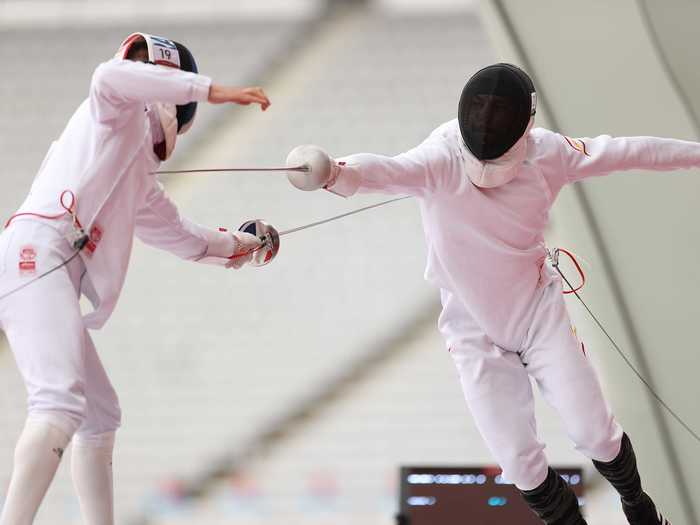Every Summer Olympics fans get a chance to watch a whole array of sports they only watch every four years.
Whether it's speed climbing, artistic swimming, or the steeplechase for two weeks many of us become instant experts on unusual, complicated sports that we'd never heard of three days earlier.
Perhaps the most unusual of those sports in the modern pentathlon.
First introduced to the modern Olympics in 1912, the event has its origins in the pentathlon of the ancient Olympic Games.
While both events have five disciplines, that's where the similarities end. In the ancient pentathlon competitors entered a running race, followed by a javelin throw, discus throw, and long jump, before finally competing in a wrestling match.
By contrast, the modern pentathlon - introduced to the games in 1912 by Baron Pierre de Coubertin, the founder of the modern Olympic Games - tests the skills required by soldiers in the 19th century.
According to a 19th-century story, the events in the modern pentathlon are based on a young French cavalry officer who was sent on horseback to deliver a message.
While on his journey, he had to ride a horse, fight with a sword, shoot, swim and run. Those five disciplines make up the sport as we know it in 2021.
Uniquely, all events are conducted on the same day as to truly mimic a day of a soldier.
Throughout the events, athletes accumulate points and this gives them an advantage in the final race which decides who wins gold.
De Coubertin, according to the Olympics, said that sport should test "a man's moral qualities as much as his physical resources and skills, producing thereby the ideal, complete athlete."
The modern pentathlon does just that.
Fencing

The fencing portion of the pentathlon is split into two parts, a ranking round and a bonus round.
In the ranking round, athletes compete in a round-robin tournament of one-minute matches and the winner is the fencer who scores the most points.
After the ranking round, the athletes are sorted based on their results and compete in the bonus round which is elimination style. This time, the duels last for just 30 seconds and points for winning are added to ones earned in the previous round.
Swimming

Points are then awarded based on their finishing times.
Olympic level female pentathletes usually swim 200 meters in around two minutes and 15 seconds, roughly 20 seconds slower than athletes who compete solely in swimming.
Horse riding

This differs from equestrian events in that riders and horses are only introduced to one another just 20 minutes before the event.
However, following an incident at the Tokyo Olympics where a German coach punched a disobedient horse and several horses refused to comply with their riders, there have been calls to change this rule.
Laser-Run

Athletes line up according to their scores in the first disciplines. The leader is given a one second advantage for every point they are ahead of the field.
Competitors run 800 meters, then fire at five targets using a laser pistol from a distance of 10 meters shooting until they hit all five, or until 50 seconds passes.
They repeat this four times, running a total of 3,200 meters.
Competitors must ensure they run at a quick enough pace, but also that they are able to catch their breath so they can take the shot with a steady hand.
The winner of the gold medal is the first athlete to cross the finish line.
SOURCE : BUSINESS INSIDER







